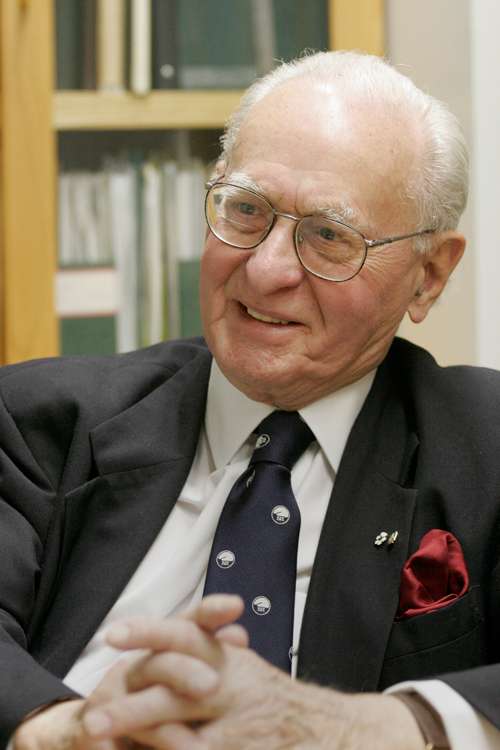On Jan. 12, Canada lost one of its most renowned and revered neurosurgeons. William Feindel (O.C., G.O.Q., MDCM, D. Phil) passed away quietly at the Montreal Neurological Institute (MNI) Hospital after a brief illness, according to the McGill Reporter. Feindel was a pioneer in the field of neurological medicine, and contributed numerous discoveries to both Canadian research and surgery.
William Howard Feindel was born 1918 in Bridgewater, Nova Scotia. He attended Acadia University, where he received a B.A. with a major in Biology, followed by a M.Sc. from Dalhousie University. Feindel completed medical school at McGill in 1945, after which he studied as a Rhodes Scholar at Merton College, Oxford University, earning his D. Phil in neuroanatomy. As a physiology professor at the MNI, Feindel researched new treatments for nervous system injuries during the second world war alongside Wilder Penfield, the MNI’s founder and first director. In 1955, Feindel founded the Neurosurgical Department at University of Saskatchewan’s medical school, where he also worked to develop the first radioisotopic brain scanner.
Upon Feindel’s return to McGill and the MNI, he established the William Cone Laboratory for Neurosurgical Research and contributed to over 500 research articles in the field of epilepsy and brain disease detection. Together with Penfield and Herbert Jasper, Feindel helped to invent the “Montreal Procedure,” a groundbreaking epilepsy treatment that involved the surgical removal of the antero-medial temporal lobe—a region of the brain involved in retaining visual memories and processing sensory input—in a conscious patient.
In 1972, Feindel became the third director of the MNI and proceeded to revolutionize brain-scanning technology in Canada. In addition to developing one of the first positron emission tomography (PET) units in the world, Feindel and his clinical neuroscience team also brought the first computerized axial tomography (CAT) scanner and magnetic resonance imaging (MRI) unit to Canada. He oversaw the MNI’s impressive growth both in size, with the addition of two new wings, and in worldwide prominence as a premier brain-imaging centre.
During his time at the MNI, Feindel wrote and published extensively on his scientific research as well as on the topic of The MNI’s history. His work and contributions have been recognized with many awards and honours, including honorary degrees from four universities, an induction into the Canadian Medical Hall of Fame, and the titles of Royal Society of Canada Fellow, Officer of the Order of Canada, and Grand Officer of the National Order of Quebec.
“Dr. William Feindel personified the best of McGill’s teaching hospitals. He was a caring doctor, an outstanding researcher and a team player with a fertile and inquisitive mind,” said Normand Rinfret, CEO and director general of the McGill University Health Centre (MUHC), to the McGill Reporter.
Feindel’s legacy will live on through his medical innovations, his contributions to neuroscience literature, and the generations of students and colleagues whose minds he inspired.









